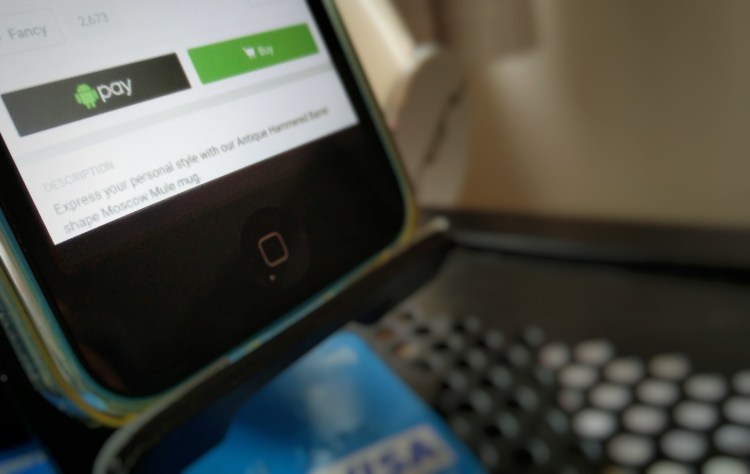Google is making its Android Pay mobile payment service more widely accessible. The company today not only extended its APIs, it also created new data feeds aimed at making it easier for developers to integrate payment processing into their apps.

Above: Making a purchase on Shopify’s mobile website using Android Pay.
Spurring the updates is Google’s desire to help people make purchases not only on mobile apps, but also on the mobile Web. The company has launched its PaymentRequest API, which simplifies the checkout process on the mobile Web and which was developed between the Android Pay and Chrome teams. This technology will also likely become a standard across browsers, as it has been submitted to World Wide Web Consortium (W3C).
What the company hopes will happen is parity between the mobile app and the mobile Web so that people can make purchases simply by tapping on their phone. Why should those on apps be the only ones with a really great experience? Of course, Google isn’t the only one thinking about the mobile Web frontier, as Apple has been rumored to be looking into this area, as well.
When it comes to applications, Google has rolled out new features to improve the odds of your paying using Android Pay within apps. It has opened up its API so it can process payments for businesses in the physical goods and services space, added another payment processor to its growing cadre of partners — to increase its network — and integrated with Google’s Android Instant Apps, which enables users to pay for goods and services with a single tap.
One could think of Android Pay as a digital wallet, a place to store pertinent information, gift cards, loyalty cards, and other offers. Google recognizes the desire for a central repository such as this and has released improvements to its Save to Android Pay API.
What this means is that users can add offers, loyalty cards, and gift cards for developer apps and companies right into Android Pay. Google said all that’s needed to make this happen is a deep link in an email, SMS message, push notification, or an app.
In addition, the API allows users to enroll in loyalty programs with a simplified sign-up feature. This is done either in-store through an NFC tap or by signing up online during the payment transaction.
The extension of Google’s Android Pay APIs reflects the company’s desire to reinforce a broad range of use-cases for its payment service. Google is billing the service as something that makes it easier to obtain goods and services without the hassles of complex forms (which may not render well on mobile devices) and is promoting Android Pay as the new digital wallet.


